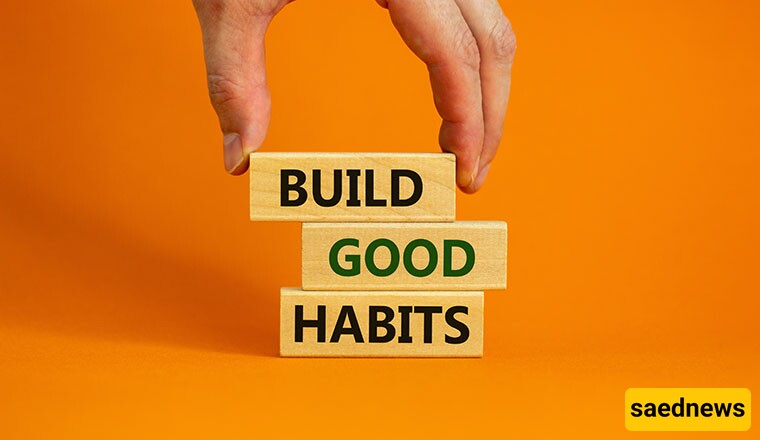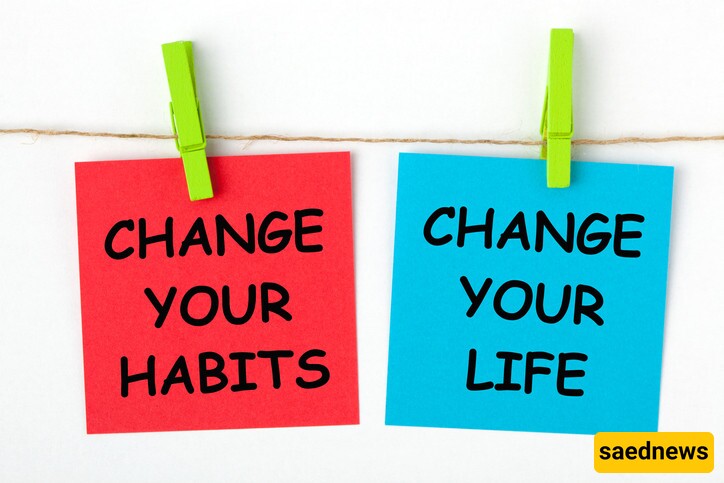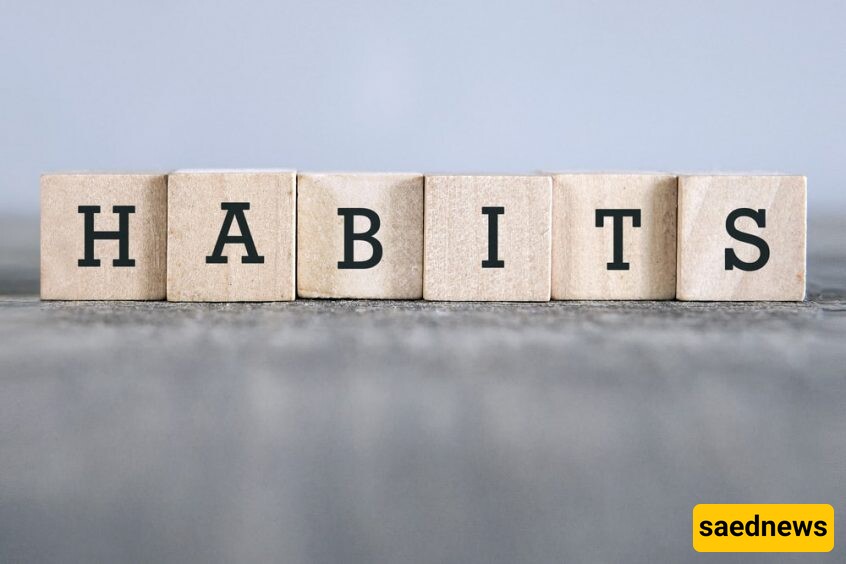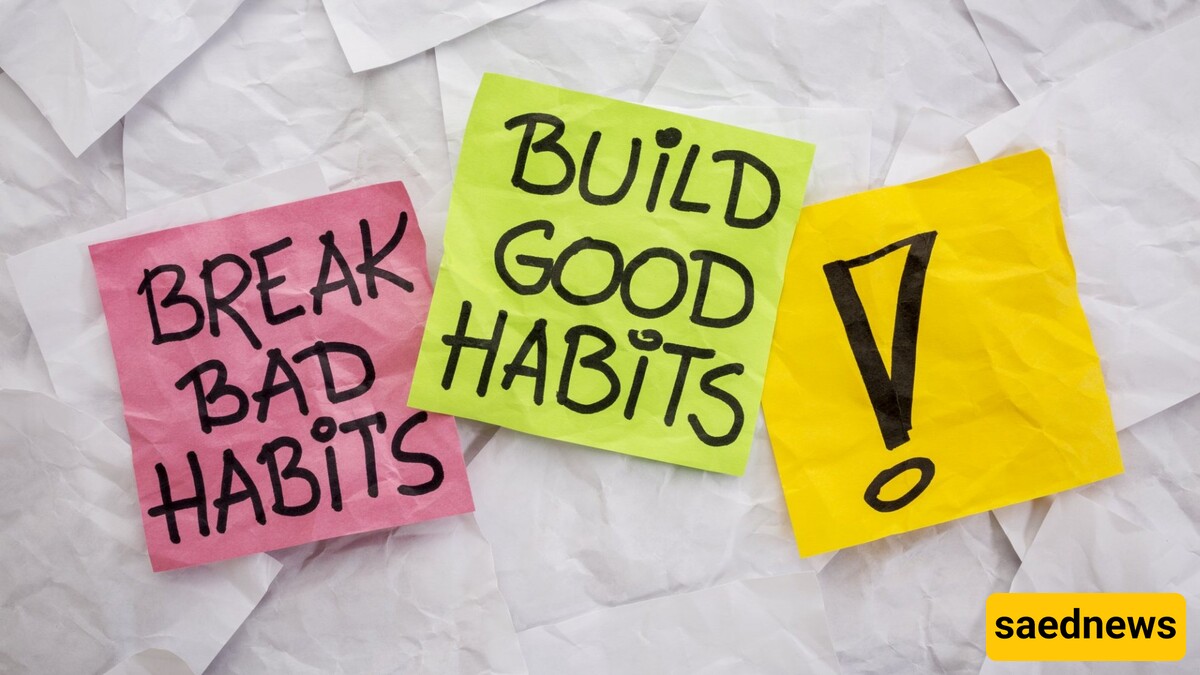SAEDNEWS: Breaking bad habits requires determination, and demands understanding their psychological and neurological foundations. Lasting change is achievable by addressing triggers and implementing proven strategies.

According to SAEDNEWS, habits are deeply rooted in our brain’s reward system, helping us automate everyday actions. However, harmful habits can negatively affect our health and productivity. Overcoming them involves more than willpower—it requires science-backed strategies.

Cue, Routine, and Reward
Habits consist of three components:
Cue: The trigger that starts the behavior.
Routine: The action itself.
Reward: The benefit reinforcing the habit.
For instance, stress (cue) may lead to overeating (routine) for comfort (reward). Understanding and addressing each element is key to breaking the cycle.
Neural Pathways
Habits develop through repetitive actions, strengthening neural pathways in the brain. These behaviors often become automatic, controlled by the basal ganglia. Breaking a habit requires consistent effort to rewire these connections.
Dopamine’s Role
Many bad habits persist because they provide dopamine, a feel-good chemical. This reward reinforces the behavior, making it harder to quit. Finding healthier alternatives to achieve similar rewards can help break the cycle.

Identify Triggers
Understanding what prompts your habit is crucial. Keep a log of when and where the habit occurs, noting emotional or situational cues. Identifying patterns allows you to anticipate and manage triggers.
Replace Instead of Removing
Eliminating a habit without substitution often leads to relapse. Replace the habit with a positive behavior that fulfills the same need. For example, replace smoking with deep-breathing exercises to manage stress.
Start Small
Focus on one habit at a time. Breaking large goals into smaller steps makes them more manageable and increases your chances of success.
Use Positive Reinforcement
Reward yourself for progress, no matter how small. Celebrating achievements reinforces new behaviors and keeps motivation high.

Environment Matters
Your surroundings can significantly influence your habits. Adjust your environment to remove temptations and support positive behaviors. For instance, keep your workspace free of distractions to maintain focus.
Social Support
Enlist friends, family, or support groups to help you stay accountable. Sharing your goals provides encouragement and fosters a sense of responsibility.
Practice Mindfulness
Mindfulness helps you recognize and manage urges. Techniques like meditation can improve self-awareness, enabling thoughtful responses to triggers rather than automatic reactions.

The Reality Behind the “21 Days” Rule
While the popular belief is that habits can be broken in 21 days, studies suggest it typically takes longer. Research published in the European Journal of Social Psychology indicates it takes an average of 66 days to form or break a habit, depending on complexity.
Patience and consistency are crucial. Over time, persistent effort rewires the brain, replacing old habits with healthier alternatives.
Relapses often occur during stressful or unexpected situations. These lapses are normal and should be seen as part of the learning process rather than failures. After a setback, reflect on what went wrong and adjust your approach. The sooner you recover, the less impact it will have on your progress.
Breaking bad habits is a gradual process requiring patience, determination, and the right strategies. By understanding their structure and using science-based methods, you can create meaningful, lasting change. With consistent effort, you can pave the way for a healthier, more fulfilling life.

